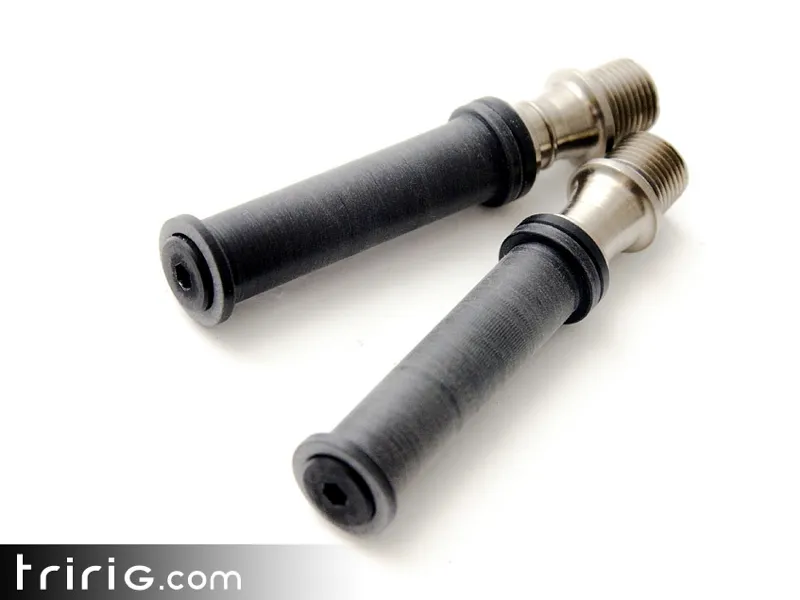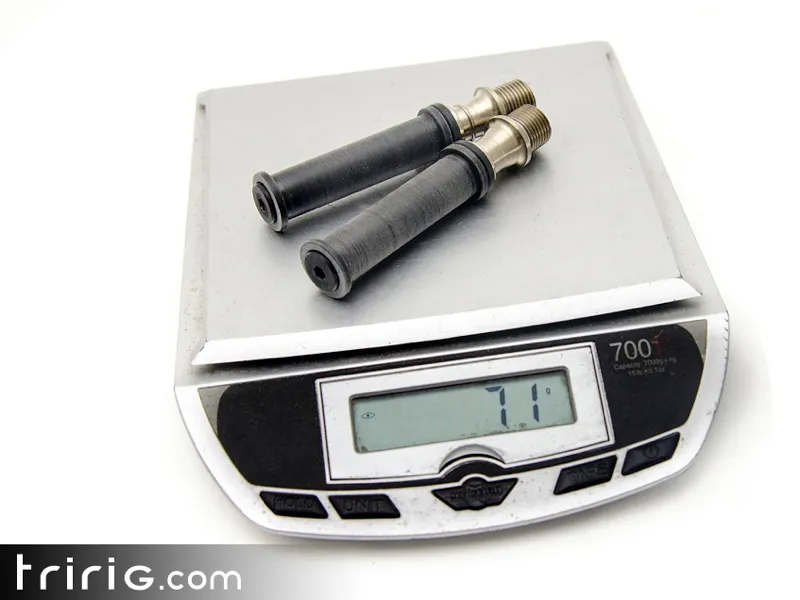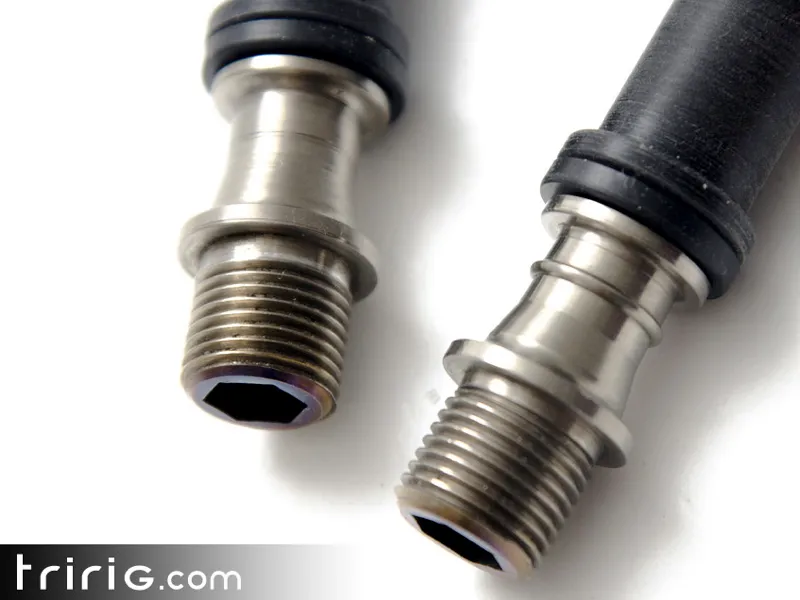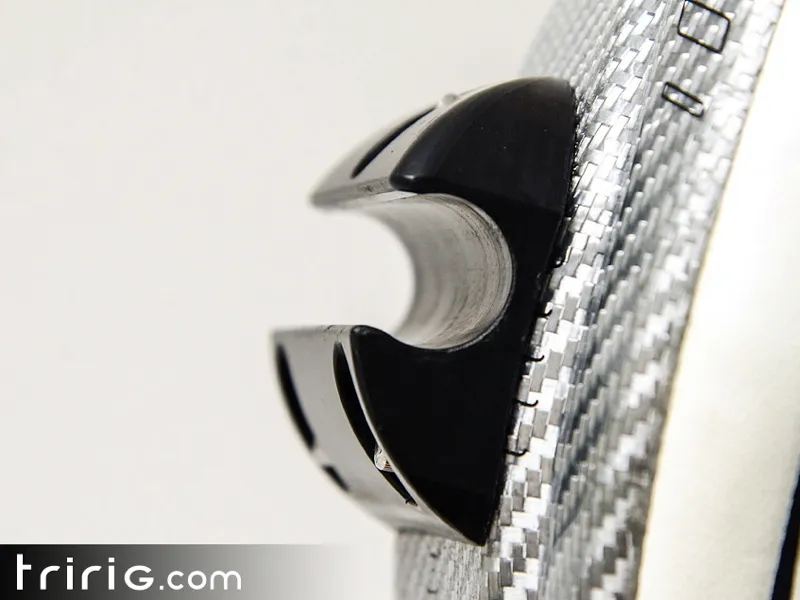Triathlon website TriRig is getting ready to launch the Mercury pedal, a 35g sleeve-clamp design inspired by the Aerolite pedal from 1986.
The Mercury comes on the heels of the 36g Ultralite pedal launched late last year in Boulder, Colorado. At just a hair over over 35g — a pair weighs 71g — the Mercury could become the world's light road pedal. Please note that this is the prototype weight; final product is expected in March.
The Mercury pedal consists of just three parts. A nylon sleeve is secured onto a titanium spindle with a 4mm hex bolt. The one-piece, C-shaped, plastic cleat clamps down onto the sleeve, which rotates on the spindle. To engage, the rider steps straight down onto the pedal. To disengage, the rider rolls their foot out to the side - not the traditional, heel-twist motion used with systems like Shimano, Look or Time.
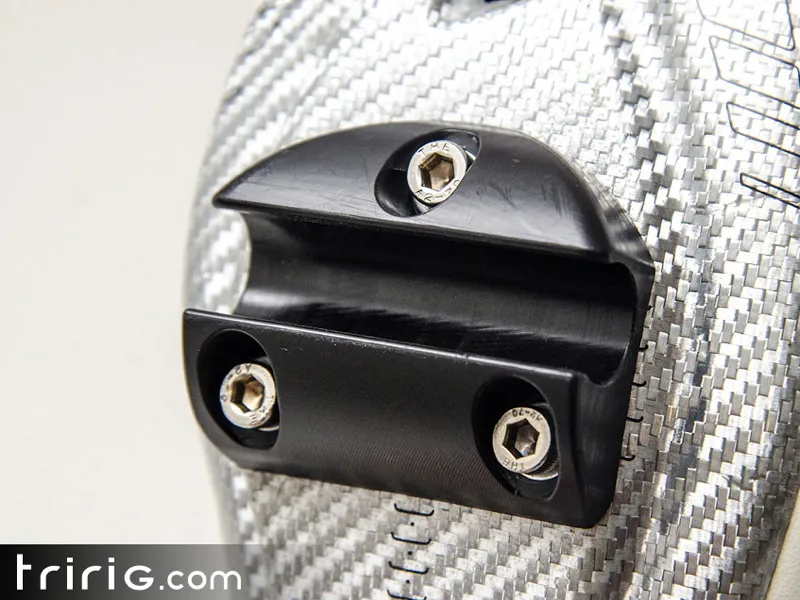
Step down to engage; roll the foot in supination, as if twisting your ankle, to disengage
Unlike the old Aerolite pedals, however, the Mercury pedals can adjust for Q factor, or stance width, via spacers on the spindle. Each set will come with 3mm and 6mm spacers. The total Q factor range is 47-56mm.
There are no bearings in the system. The nylon sleeve just rotates on the titanium spindle.
The pedals are fixed, meaning there is no float in the system. They work on the standard three-hole cleat pattern, but there is slightly less fore-aft adjustment (about 4mm) than a standard pedal.
The pedals are still in prototype stage, but the price has been set at $249 (£156).
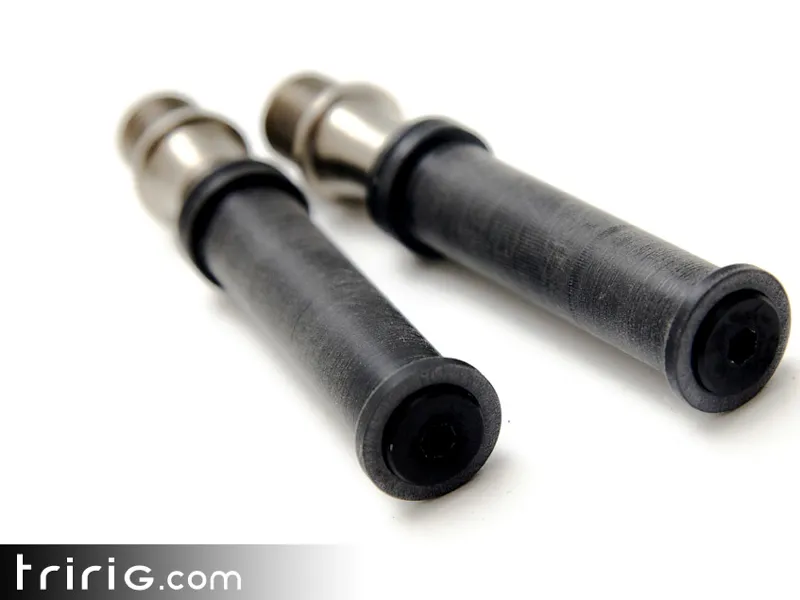
There are no bearings in the system. The nylon sleeve just rotates on the titanium spindle
Each pedal weighs a claimed 35g (although they must be at least a fraction of a gram heavier, as TriRig pictures show a pair on a scale with a 71g readout), the cleats weigh a claimed 19g apiece and the three cleat bolts are probably about 6g per shoe. All told you're looking at roughly 120g for the entire system.
"The inspiration/motivation for making these began with Aerolite," TriRig's Nick Salazar told BikeRadar. "I used those pedals for a season, and while I greatly admired the simplicity and low weight of the system, it was simply impractical to use based on the unique bolt pattern. You basically have to drill your shoes to use those, and then you have no room for adjustment after that. There were some other fit and function issues I had with those as well. Mercury is my take on that type of mechanism, but updated for use with modern bike shoes, and with some unique improvements (Q adjustment, etc)."
The pedals also have a very low stack height (the distance from the bottom of the shoe to the center of the spindle) of a claimed 10.5mm.
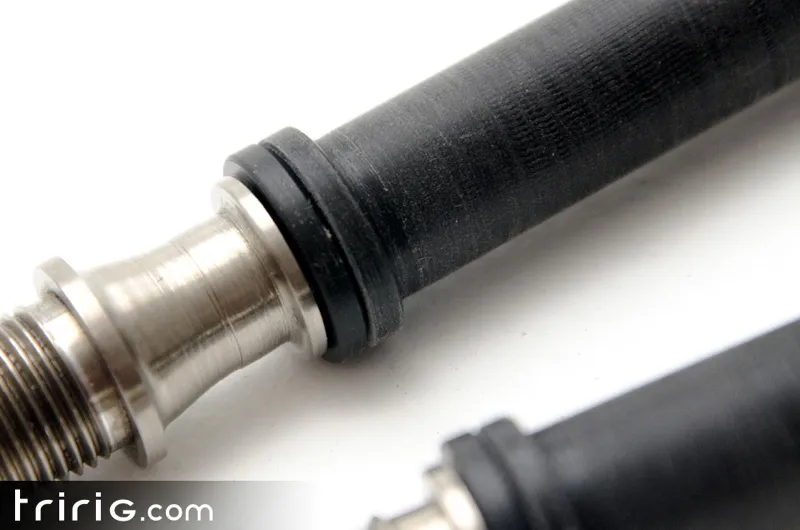
3mm or 6mm spacers can be added to extend Q factor (stance width)
When the pedals go on sale, likely in March, TriRig will offer a six-month return policy. "We want everyone to be able to try these out without fear that they won't suit the rider," Salazar said. "So you can use and abuse them for an entire season, and send them back if they don't work."
The cleats are 15mm tall and 55mm wide. While that healthy width could provide a stable pedaling platform, the shape of the cleat will likely make walking more difficult than a more common cleat system, which is something Salazar acknowledges. "Any cleat of this type is going to be harder to walk in than something like, say, Keywin," he said. "Mercury is optimized for its merits as a cycling instrument, not as a walking implement."
"The Mercury isn't meant to be all things to all people, but we think that most riders who really give them a shot will absolutely love them," Salazar said. "That's why we offered the extra-long returns for these. Pedals are something people can get very personal about, and we want everyone to feel very free to try these out."
